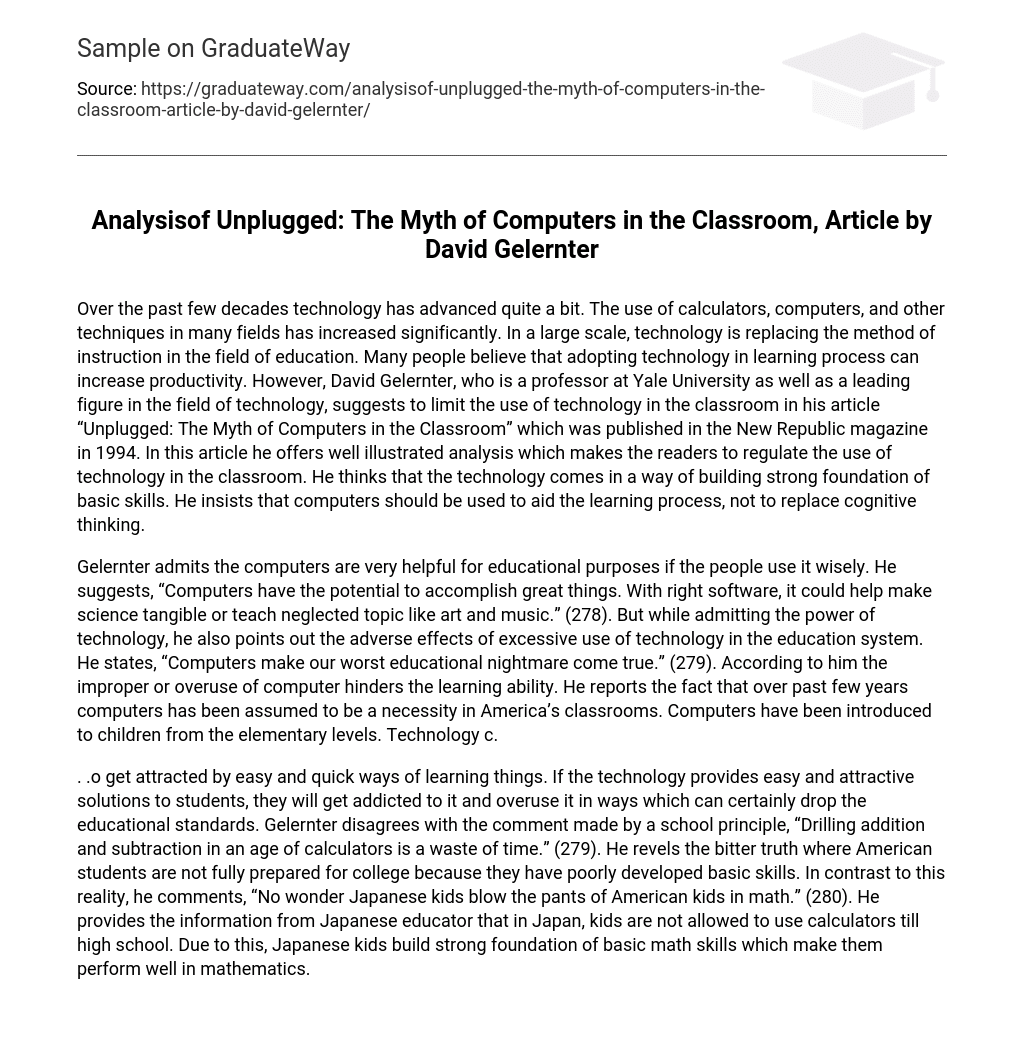David Gelernter, a professor at Yale University and technology expert, proposes in a 1994 article for the New Republic magazine that the use of technology in the classroom should be restricted. Despite claims that incorporating technology into education can enhance productivity, Gelernter asserts that it actually impedes the acquisition of fundamental skills. He stresses the importance of computers being utilized to aid learning rather than supplant cognitive reasoning.
Gelernter acknowledges that computers can be extremely beneficial for educational purposes if used wisely. He suggests that with the right software, computers have the potential to make science more tangible and teach neglected subjects like art and music (278). However, despite recognizing the power of technology, he also highlights the negative effects of excessive use of computers in education. He states that computers can make our worst educational nightmares come true (279). Gelernter believes that improper or excessive use of computers can hinder learning ability. He also reports that over the past few years, computers have become seen as a necessity in American classrooms, even being introduced to elementary-level children (c).
Gelernter disputes the notion that relying on calculators for basic math is a waste of time. He argues that if technology offers convenient and appealing solutions to students, they will become overly dependent on it and potentially lower educational standards. He highlights the fact that American students often enter college unprepared, lacking essential foundational skills. In contrast, Gelernter points out that Japanese students outperform their American counterparts in math. Japanese educators prohibit the use of calculators until high school, allowing students to develop a solid base in fundamental math skills, ultimately leading to better performance in mathematics.





